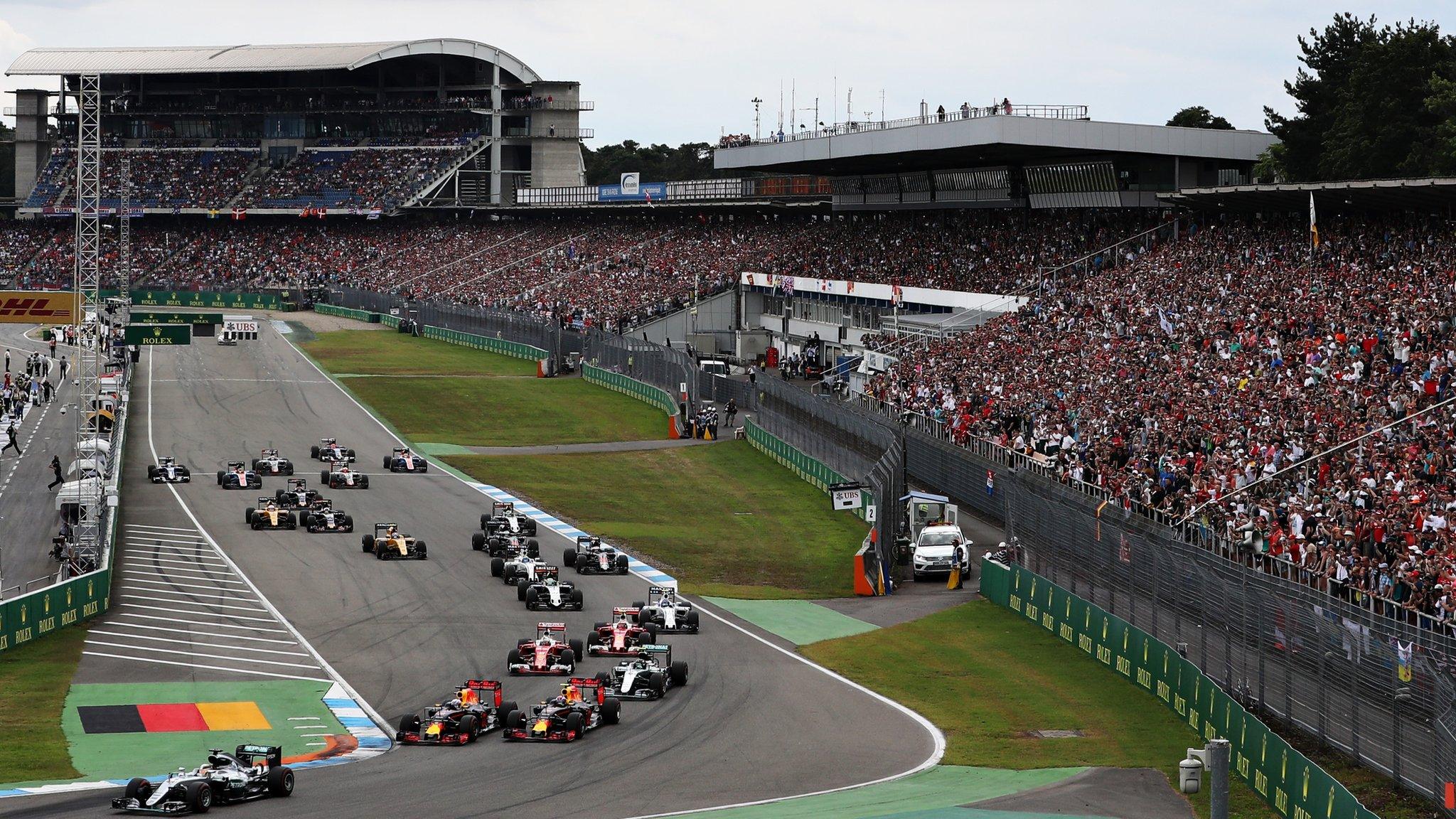Nico Rosberg retires: 'A classy move from a classy man'
- Published
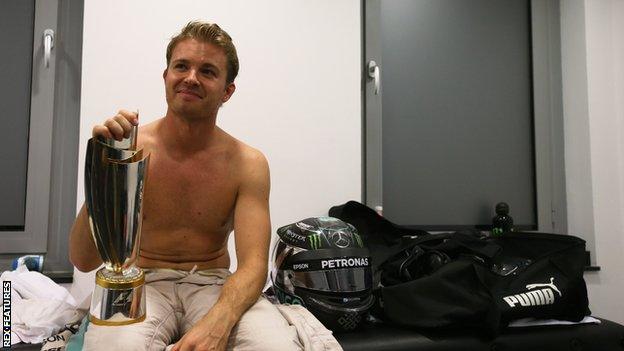
Nico Rosberg's decision to announce his retirement from Formula 1 just five days after clinching his first world title is a major shock - but perhaps it should not be.
The German put everything into this season, as he explained in his statement on Friday. The pressure of those last few races was plain to see in Abu Dhabi on Sunday, in the way it peeled off him by degrees in the hours after the race.
While thinking about how hard winning that title was, his thoughts turned very quickly to what it would take to try to beat Lewis Hamilton again in 2017. He clearly felt that at the age of 31, with a young daughter, he was not prepared to make those sacrifices any more.
All in all, it is a classy move from a classy man.
Nico Rosberg announces Formula 1 retirement to fans
A fine grand prix driver
Rosberg was not the most illuminating of interviewees this season - his total focus on the championship included a refusal to contemplate any questions about the championship situation, Hamilton or anything else beyond his "one-race-at-a-time" mantra.
And yet somehow he did it in a way that combined approachability, humility, respect for the media, humour and humanity.
In so doing, the respect in which he was held - already high - went up.
Rosberg was always a very fine grand prix driver. His problem - if you can call it that - was he was operating in a period in which there were a number of great ones.
Hamilton - the burning natural talent, a force of nature - is one. Fernando Alonso - with an ability just as high, but making up in consistency and relentlessness what tiny last bit of speed he perhaps sacrificed to Hamilton - another.

Rosberg celebrates winning the world title in Abu Dhabi - what is now his last F1 race
Some would argue the case for Sebastian Vettel's place in that firmament - he has four titles and 42 wins under this belt - but it has become clear in recent years that he operates at his best only in very specific circumstances.
And in recent years, there has been the emergence of Daniel Ricciardo and Max Verstappen.
Because of this, and the way Hamilton, Alonso, Ricciardo and Verstappen drove in 2016, Rosberg would have been at the top of very few dispassionate observers' lists of the best drivers of the year, despite clearly driving better than he ever had before.
The Hamilton rivalry
Rosberg was well aware of where he stood - it was obvious from the deferential terms he used to describe Hamilton's talent.
But what he lacked in that last smidgen of ability that separates the very good from the great, he worked hard at making up with application and an intellect that was rare even among top F1 drivers.
In the way he operated, it was very clear this was a man who gave up the chance to do a degree in engineering at a university in London to focus on his racing career.
He has gone toe-to-toe with Hamilton in the same car for four years now and he can hold his head up high.
In that time, Hamilton has won 32 races, Rosberg 22; Hamilton taken 54 podiums, Rosberg 48; Hamilton scored 1,334 points, Rosberg 1,195.

Rosberg and Hamilton raced together since they were teenagers - the German had never beaten him until winning the title this year
On balance, when you look only at races in which circumstances have allowed them to be direct competitors, Hamilton has beaten Rosberg at a ratio of about 2:1 and has been on average just over 0.1secs quicker in qualifying.
Considering Hamilton is - as Jenson Button puts it - "one of the fastest drivers ever to race in F1", that puts Rosberg at a very high level indeed.
Rosberg's title destiny
As soon as Rosberg won the first four races of this season, people up and down the F1 paddock were saying this was the best chance he would ever get of winning the championship. The thought was clearly in Rosberg's mind, too.
Hamilton got back into the lead, only to lose it again. And he was poised to reclaim it only for his engine to fail while leading the race in Malaysia.
Reading Rosberg's statement, his achievement in holding it together under immense pressure once fate turned the season his way that afternoon in Sepang - followed by his win in Japan a week later - comes into even sharper focus.
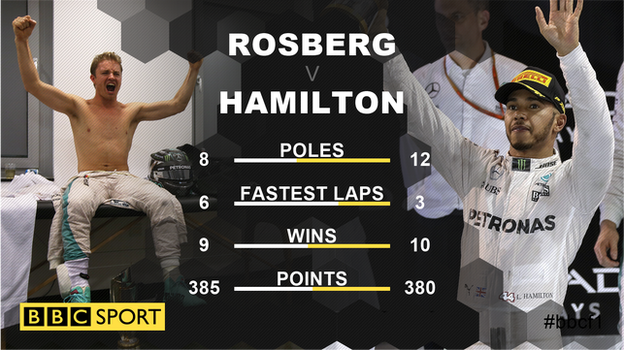
How Rosberg and Hamilton matched up in 2016
"When I won the race in Suzuka, from the moment when the destiny of the title was in my own hands, the big pressure started and I began to think about ending my racing career if I became world champion," he wrote.
"On Sunday morning in Abu Dhabi, I knew that it could be my last race and that feeling cleared my head before the start.
"I wanted to enjoy every part of the experience, knowing it might be the last time. And then the lights went out and I had the most intense 55 laps of my life. I took my decision on Monday evening, after reflecting for a day."
He added: "I gave it everything I had, didn't leave a stone unturned and I am not willing to do that again next year. Just following my heart. You only live once and this feels completely right."
Not a great F1 driver, perhaps. But a great man, certainly, and a brave and singular one, too.
- Published2 December 2016
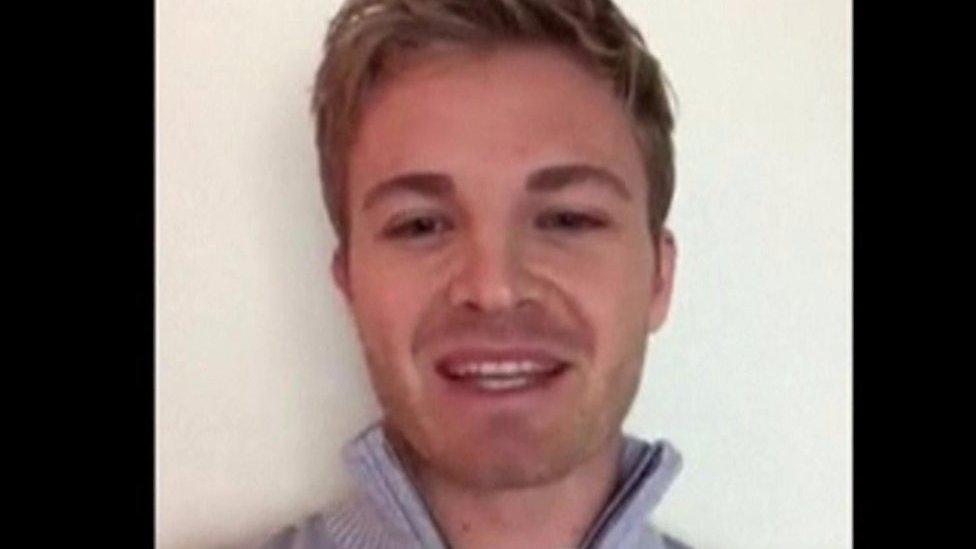
- Published2 December 2016
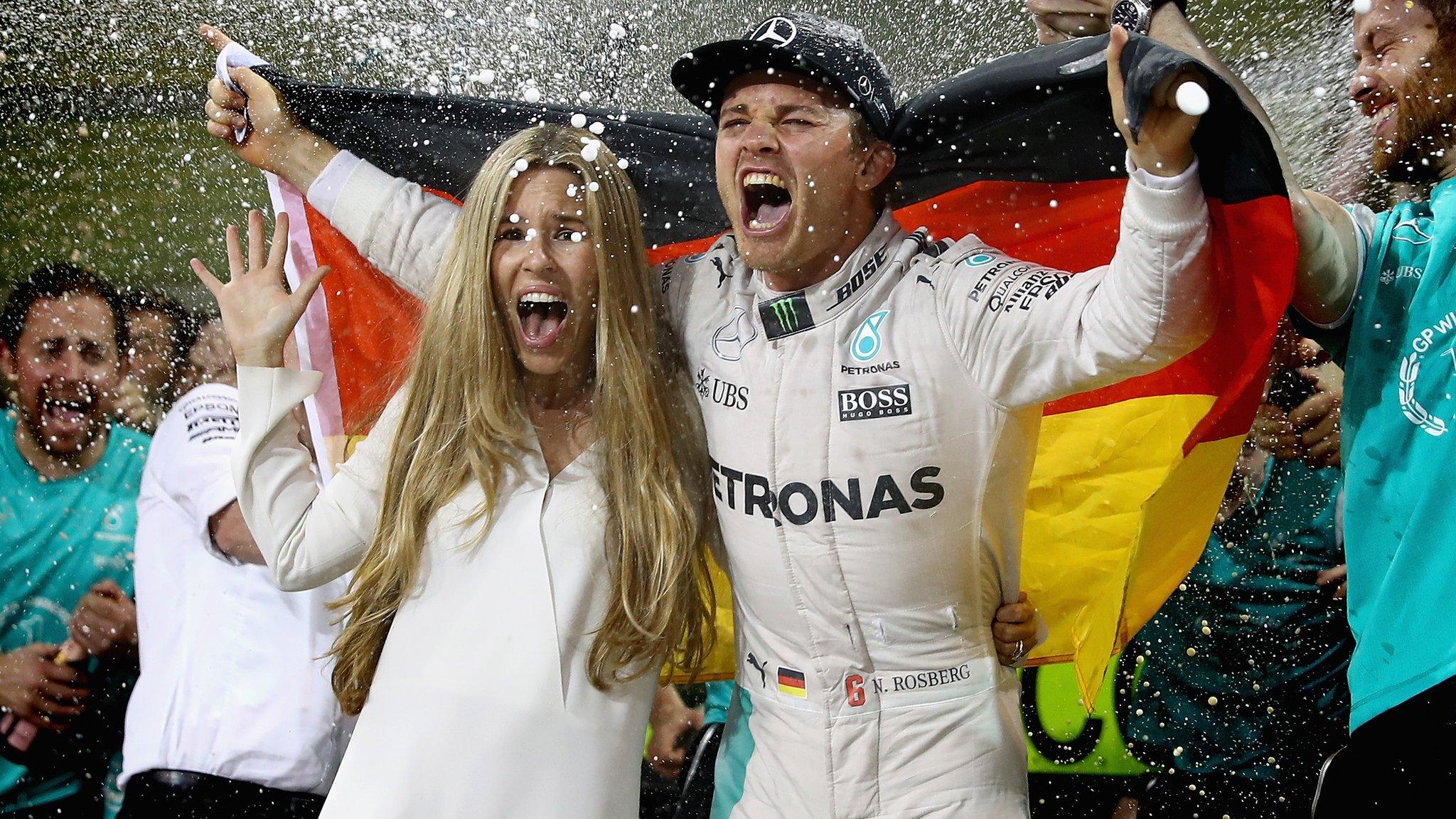
- Published27 November 2016
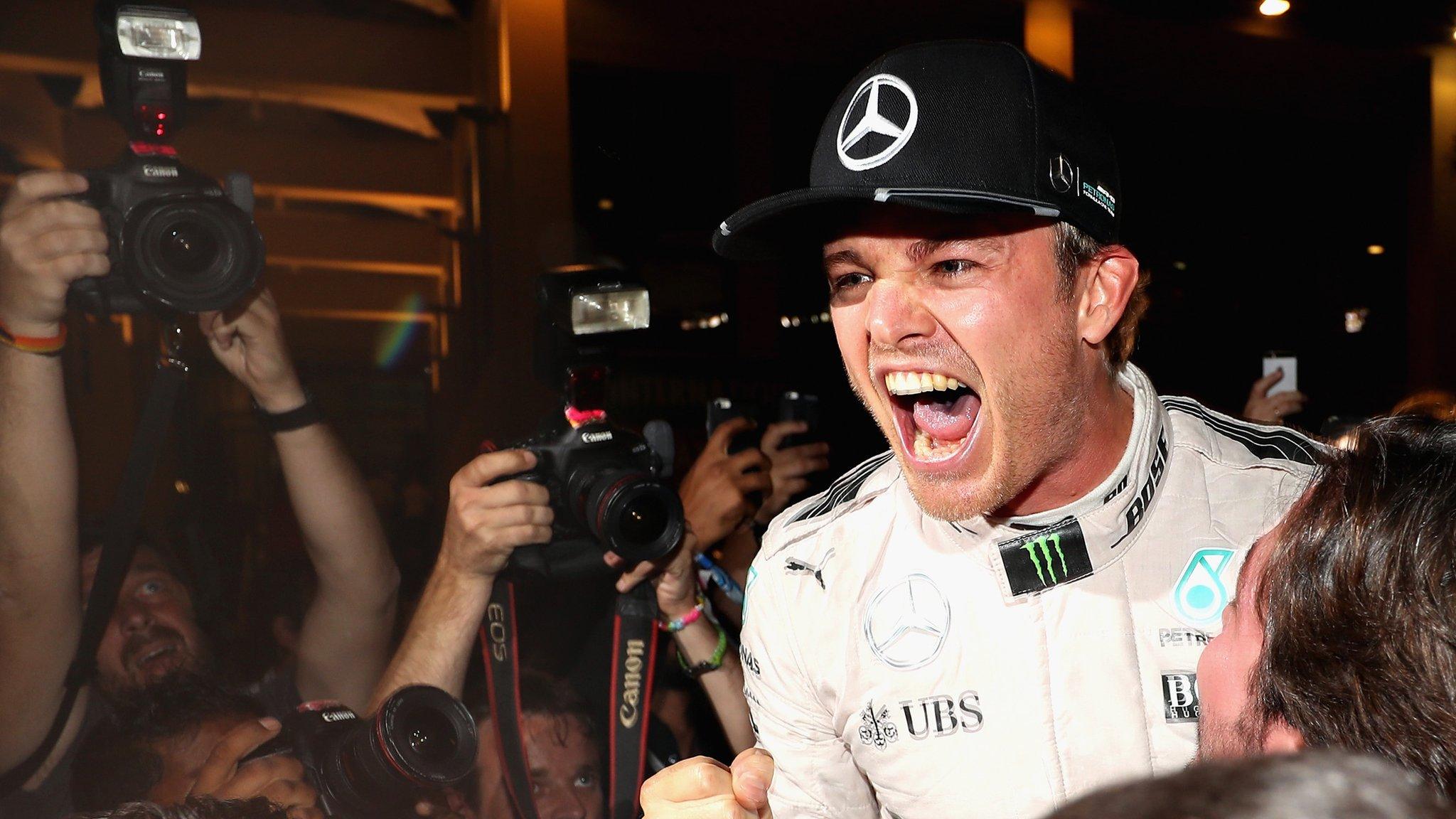
- Published27 November 2016
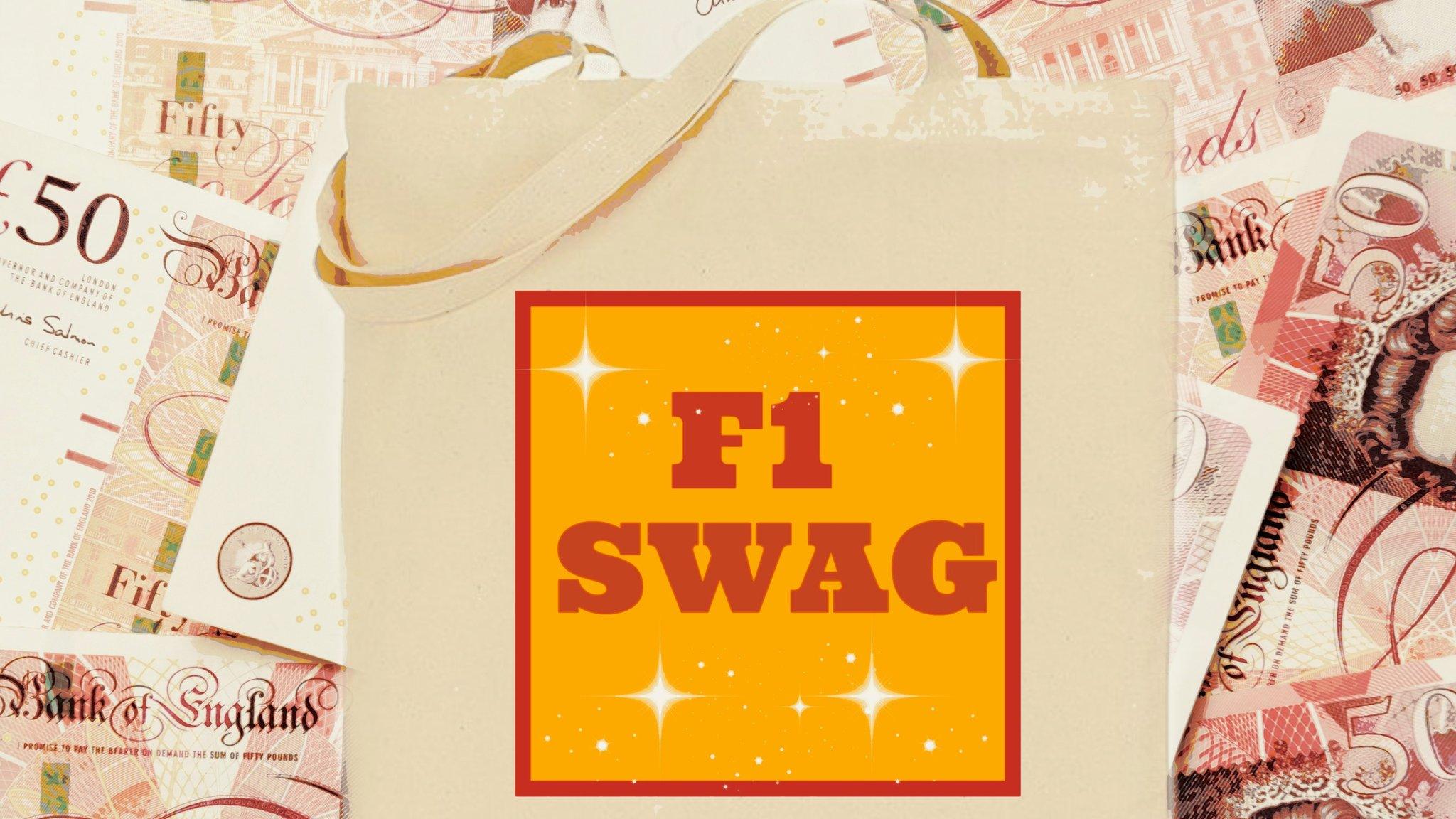
- Published30 November 2016
